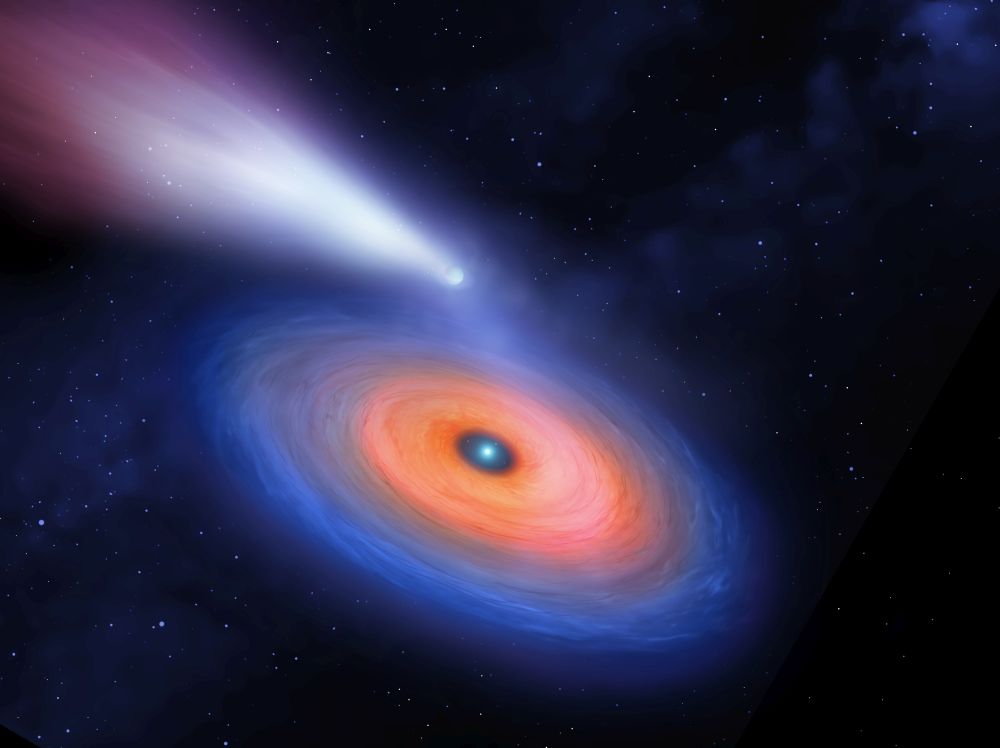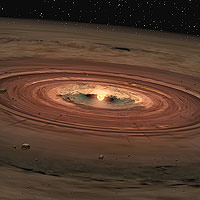Black holes are by their very nature, challenging to observe and difficult to spot. It’s usually observations of the accretion disk that reveal properties of the hidden black hole. There is often enough material within the accretion disk to make them shine so brightly that they can often be among the brightest objects in space. A wonderful image has been released which shows the highest resolution simulation of a black hole accretion disk ever created.
Continue reading “Simulating the Accretion Disk Around a Black Hole”Neptune-Sized Planet Found Orbiting a Dead White Dwarf Star. Here’s the Crazy Part, the Planet is 4 Times Bigger Than the Star

Astronomers have discovered a large Neptune-sized planet orbiting a white dwarf star. The planet is four times bigger than the star, and the white dwarf appears to be slowly destroying the planet: the heat from the white dwarf is evaporating material from the planet’s atmosphere, forming a comet-like tail.
Continue reading “Neptune-Sized Planet Found Orbiting a Dead White Dwarf Star. Here’s the Crazy Part, the Planet is 4 Times Bigger Than the Star”Podcast: Accretion Discs
When too much material tries to come together, everything starts to spin and flatten out. You get an accretion disc. Astronomers find them around newly forming stars, supermassive black holes and many other places in the Universe. Today we’ll talk about what it takes to get an accretion disc, and how they help us understand the objects inside.
Click here to download the episode.
Or subscribe to: astronomycast.com/podcast.xml with your podcatching software.
“Accretion Discs” on the Astronomy Cast website, with shownotes and transcript.
And the podcast is also available as a video, as Fraser and Pamela now record Astronomy Cast as part of a Google+ Hangout (usually recorded every Monday at 3 pm Eastern Time):


